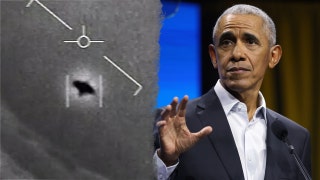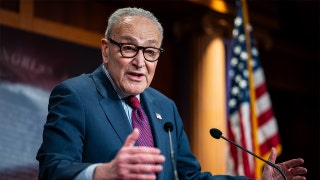FDA approves first at-home test kit for COVID-19
Dr. Craig Spencer, from New York Presbyterian Columbia Medical Center, explains how the at-home test works.
Get all the latest news on coronavirus and more delivered daily to your inbox. Sign up here.
Dr. Craig Spencer of New York-Presbyterian Columbia Medical Center told "Bill Hemmer Reports" Tuesday that a new at-home coronavirus test approved by the FDA will be "important" and "helpful" he advised against "relying on this too much" in the absence of information about its accuracy.
The FDA announced earlier Tuesday that it had reissued an Emergency Use Authorization for LabCorp to permit testing of samples that were self-collected by patients in their home using LabCorp's Pixel by LabCorp COVID-19 Test home collection kit.
FDA AUTHORIZES FIRST AT-HOME CORONAVIRUS TEST
The test contains "a nasal swab that you mix with a little saline," Spencer explained.
"This could be dangerous if we're giving this and people are using this as a kind of get out of the house and go back to normal functioning."
"Then you send [it] back to a place like LabCorp [or] one of these big national testing centers. You will get a result back later to determine whether or not you have antibodies [and] theoretically, whether or not you are immune," he added.
"This is important, and it’s helpful, but we need to be careful to not rely on this too much, because we don’t exactly know the thresholds for this test," Spencer cautioned. "And, we don’t exactly know if someone that tests positive is actually immune."
Coronavirus testing is in the spotlight as America fights to contain the outbreak. Data compiled by the CDC indicate that, since the start of April, up to 140,000 coronavirus tests a day have been conducted in the U.S.
While the at-home test kits would dramatically change the course of testing and its accessibility in the United States, "there’s a lot of unknowns that still need to be answered," Spencer warned.
THE CORONAVIRUS OUTBREAK, STATE-BY-STATE
"We need to know how good these tests are because no test is 100 percent specific or sensitive. Just because you test negative doesn’t mean you’re necessarily negative and because you test positive doesn’t always mean that you are positive. These are really, potentially small numbers, but they can be huge," he said, referring to a potentially high false negative rate.
Spencer said that unlike a pregnancy test, which can detect pregnancy in the first week, the threshold for "how much antibodies you need in your blood" to be confirmed positive is still undetermined.
CLICK HERE FOR COMPLETE CORONAVIRUS COVERAGE
"This could be dangerous if we're giving this and people are using this as a kind of get out of the house and go back to normal functioning," Spencer said.
Spencer said that while he is skeptical about the at-home testing, he does believe that ramping up testing capacity in the U.S. will be the key to re-opening the economy nationwide.
"We know that this is going to be the way to safely reopen back the economy, not just in New York, but all over the country. I see the health impact of this disease ... and I also see and understand the economic impact it’s having,
"The White House has a plan," Spencer said. "We need a decreasing case [number] for weeks, we need way more testing, way more frequently for basically everyone that is going to be exposed over the next couple of months."
Fox News' James Rogers contributed to this report.










































